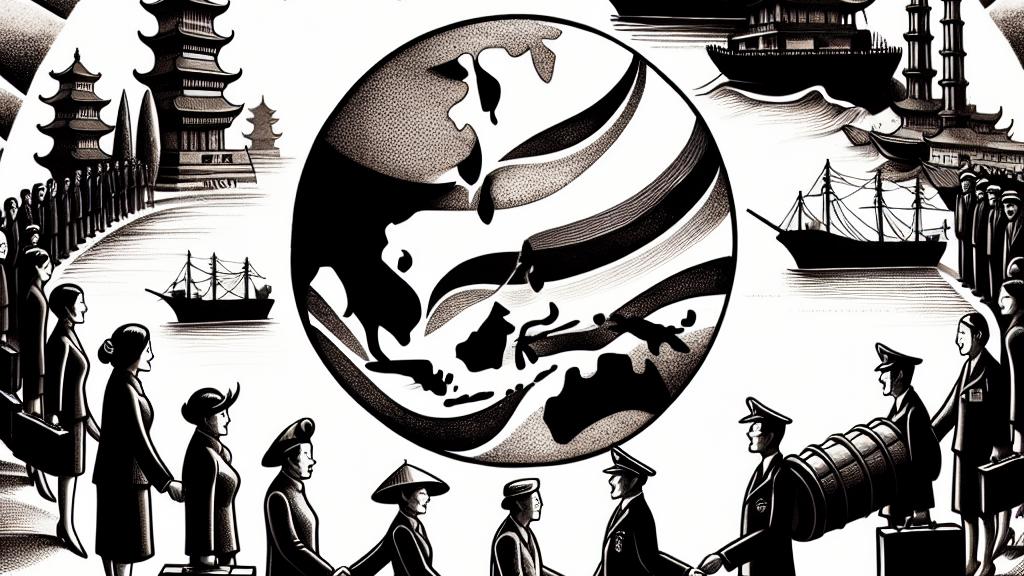Diplomatic Duels: Blinken's Bold Moves in Asia and the Middle East
Overview
- Antony Blinken embarks on a pivotal diplomatic tour across Asia, emphasizing U.S. partnerships to counter China's influence.
- The assassination of Hamas leader Ismail Haniyeh poses significant risks of escalating conflicts in the Middle East.
- Blinken engages China on aggressive actions while striving to maintain open communication channels.

Strengthening Alliances Against China
U.S. Secretary of State Antony Blinken's recent 11-day diplomatic tour across Asia represents a strong commitment to fortifying alliances against China. In Japan, he convened with Quad foreign ministers, collectively reinforcing their dedication to maritime security and cooperation in the increasingly contested Indo-Pacific region. Following alarming territorial assertiveness from China, Blinken's announcement of a $500 million military aid package to the Philippines signifies a strategic move to enhance the country's defense capabilities. This support aims to empower Manila amid ongoing disputes in the South China Sea, a vital artery for global trade. By standing shoulder-to-shoulder with its allies, the U.S. is clearly signaling its determination to maintain regional stability and uphold international norms, presenting a unified front against any form of aggressive maneuvering by Beijing.
The Aftermath of Haniyeh's Assassination
The assassination of Hamas leader Ismail Haniyeh in Tehran marks a critical juncture in Middle Eastern geopolitics, threatening to unravel delicate ceasefire negotiations in Gaza. Blinken has acknowledged the potential ramifications of this incident, emphasizing the urgent need for diplomatic interventions to prevent further escalations. The act, linked to Israel, which vowed to retaliate for ongoing attacks by Hamas, has led Iran to promise revenge, raising fears of a direct military confrontation. Analysts caution that the repercussions of this assassination could destabilize not just Israeli and Palestinian relations but spark wider unrest involving regional powers like Hezbollah and Iran, challenging the efforts of international mediators. The situation calls for a balanced approach to diplomacy, urging all parties to prioritize dialogue and restraint to mitigate the looming threat of an all-out conflict.
Navigating U.S.-China Relations
As themes of competition and cooperation dominate the U.S.-China discourse, Blinken's encounter with Chinese counterpart Wang Yi during the ASEAN meeting in Laos highlights the complexities in their burgeoning rivalry. With concerns over China's destabilizing activities in the South China Sea at the forefront, both officials stressed the importance of constructive dialogue amid rising tensions. Blinken's appeals to ensure a free and open Indo-Pacific reflect an intent to maintain a unified stance with allied nations against perceived aggressive moves from Beijing. At the same time, the discussions underscore the necessity of keeping diplomatic channels active, particularly as both powers face external pressures like Russia's military actions. This dual approach of supporting allies while seeking to engage with an adversary encapsulates the intricate balancing act that defines modern international relations, critical for crafting a stable geopolitical order.

Loading...